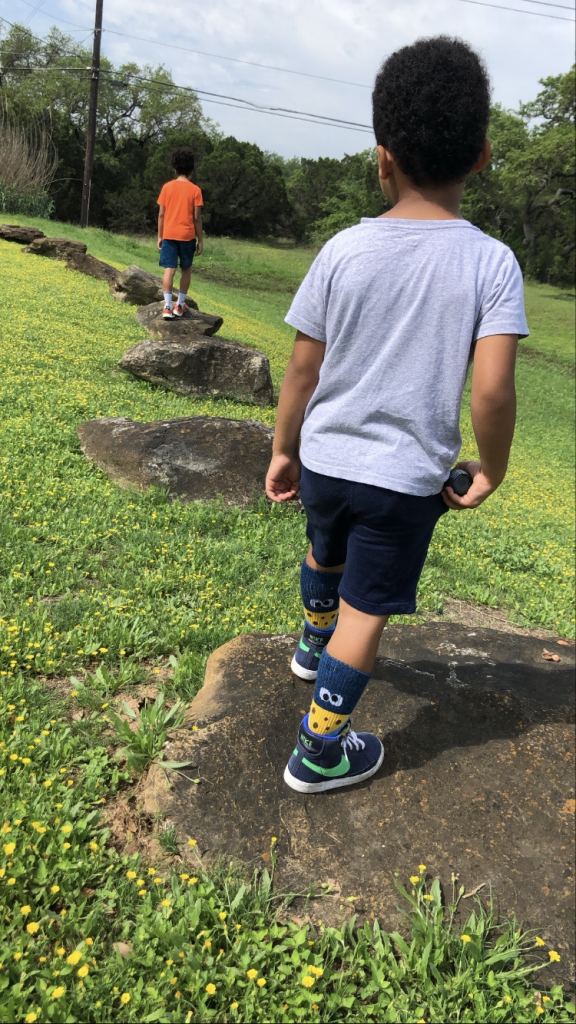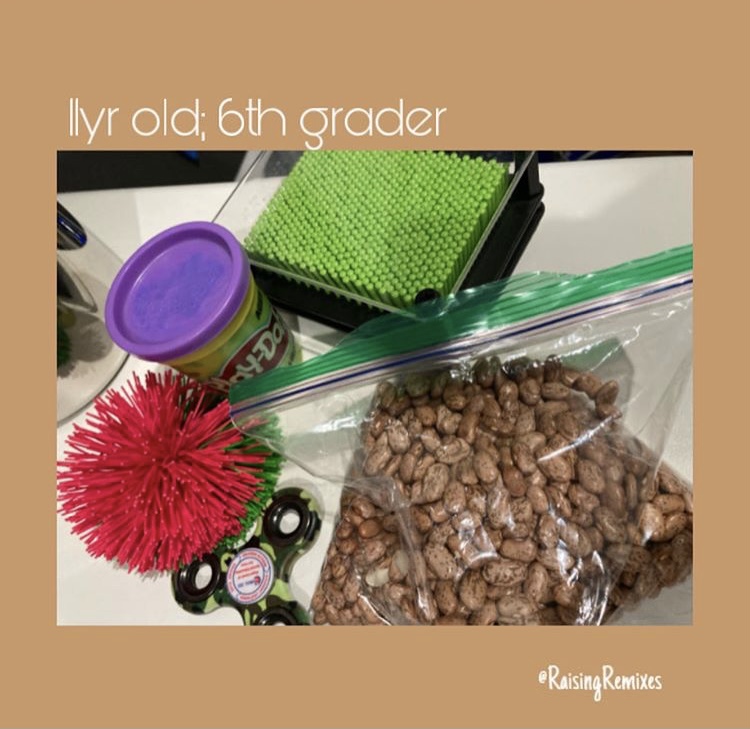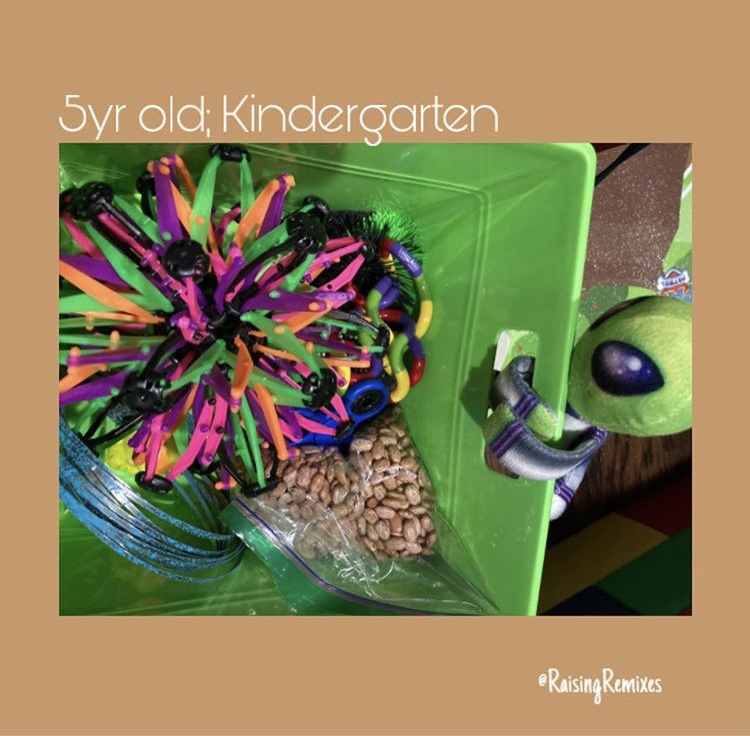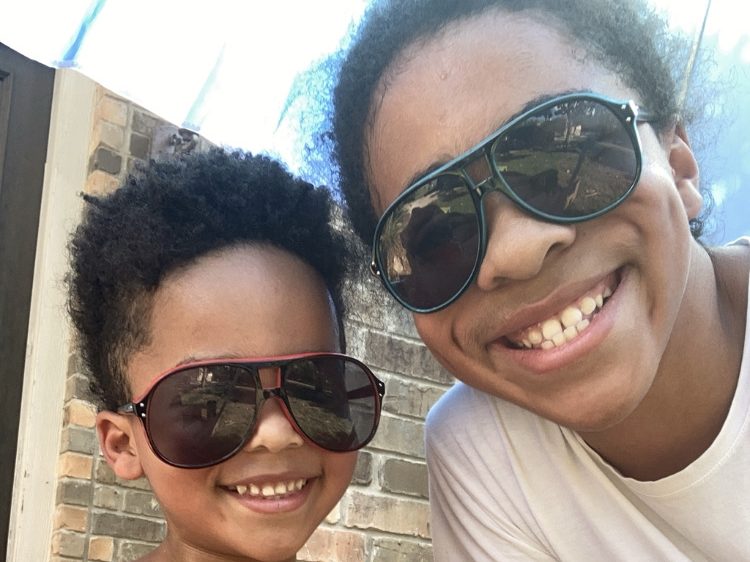This post was contributed by the wonderful mama behind Raising Remixes.
This isn’t how we wanted Kindergarten to start for our little one, or Middle School for our big boy, but here we are, like all families, doing the best we can. Last week we finished our 6th week of remote learning. I’d like to think that we have a well-oiled machine at this point, learning from each previous week. I’ve got a cheat sheet though, because I have 20 years of experience in Public Education (6 years as a Middle School Science Teacher & the rest as a High School Counselor) and I’ve got a PhD in Counselor Education. I’m fortunate to have a good balance of various educational knowledge to empower self-advocacy and build resilience. Here are my top 10 tips for families to promote successful remote learning:
- Get up and get going! Yes, you all may be staying in the house the whole day but act like you’re not. This tip is for parents & kids. Wake up early, take care of your hygiene, get dressed, eat, and get some nutrition. Set yourself up to have a great day.
- Create a learning space! It doesn’t have to be anything fancy, just a quiet spot with as few distractions (tv, siblings, etc) as possible. Headphones are a must, if the room is noisy. I recommend that you let them decorate their space using artwork, class work, and photos. It’s also imperative to allow them to have some fidgety things (i.e. putty, ziploc of beans, fidget spinners or other sensory fidget toys) at their side.
- Build a main schedule. Depending on age, each child has a different schedule. Write in everyone’s mandatory classes/meetings first, then arrange the flexible stuff around those set items throughout the day. The main schedule should work for the house and allow for shared socializing time. Post this schedule in a common area so everyone knows who is doing what at various times (this helps prevent interruptions). Consistency and transparency is extremely helpful for kids
- Let the teacher teach! You may be in the vicinity but don’t hover. Your child needs their autonomy and opportunity to develop. Coaching your little ones during class isn’t helpful, it’s enabling and does the opposite of what your intent may be. Instead, encourage your child to ask the teacher for assistance. Also, be careful not to criticize the teacher. If you are not okay with something that they do/say then set up a parent-teacher online meeting, without your child present.
- Give them breaks! School is not non-stop learning, there are breaks throughout the day (i.e. between classes, recess, lunch). Follow their school schedule as much as possible and allow them time to get their wiggles out, check their social media, grab a snack, and take a potty break. In addition to these quick breaks, encourage them to get fresh air and sunshine 1-2 times a day.
- Separate school and home life. During the “school day” you are in a very grey area but do your best to have a clear school day ending. This could look like an after school snack, a 30 minute TV break or playing outside. Even if your child has “homework” to complete, make them take a break first. At dinner, ask how their day was, what they learned, and what the best part of the day was (even though you were probably present for most of it), let them talk.
- Help your kids get organized. A lot of courses have an overwhelming amount of information. Go through it with them and help them come up with their own system. When they’re at school, teachers help them organize journals, binders, etc, so you’re just filling in that spot. Remember to let them take ownership of it. The more it makes sense for them, the easier it’ll be for them to maintain.
- Encourage social interactions. They are vital to a child’s psychosocial and identity development. This includes them developing a relationship with their teacher(s) by attending, and being actively engaged, in every live/synchronous class that is offered, and helping them professionally communicate (email) with their teacher(s). In regards to older students, encourage them to set up online study groups, or connect with classmates on social media or gaming systems. For younger children, ask the teacher to host informal online lunchtimes so the students can chit chat and get to know each other.
- Ensure safety precautions. Things that a child does online at home may have serious school ramifications. Check your school’s protocols for cyberbullying, drug/alcohol use, screenshotting/videotaping classes (of teacher and other students), and inappropriate communication. In addition to things they could possibly do, another huge concern is internet safety. Ensure that you are monitoring and restricting access to inappropriate sites, especially because it is impossible to supervise all day. Have an age appropriate talk with your children about these concerns.
- Stay up-to-date with campus community and district news. Read the weekly e-newsletters, attend any available virtual PTA meetings, stay current with Covid 19 updates, and inquire about return to in-person plans. There may be teacher/schedule changes that are a byproduct of this unknown territory. Ask questions, be supportive, and advocate if you think something isn’t acceptable. You may need to weigh out options for alternate school settings (online, charter, private) if you feel that your voice isn’t valued.
Remember, this is new territory for all of us. Be mindful of your words and actions. Be compassionate, you don’t know what other people are going through. Be flexible. We learn resilience and empathy through real life experiences. You are modeling for your children. Good luck and enjoy. Although this is not what we envisioned or wanted, we can make the best of the current situation.
Some of the links in this post are affiliate links, meaning, at no additional cost to you, we will earn a commission if you click through and make a purchase. Thank you for your support.




